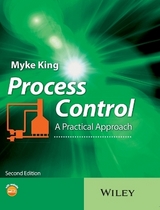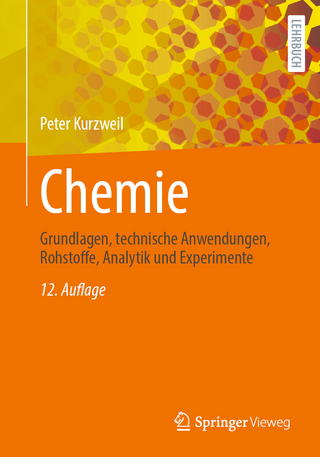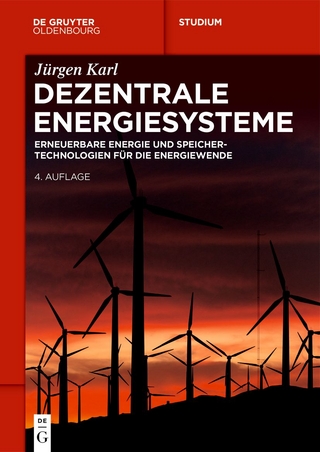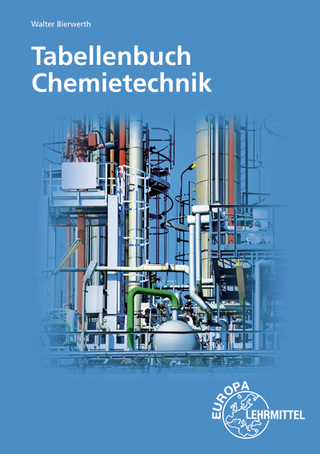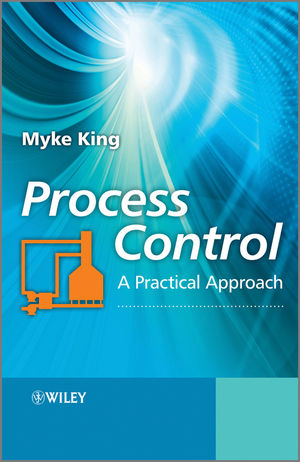
Process Control
Wiley-Blackwell (Verlag)
978-0-470-97587-9 (ISBN)
- Titel ist leider vergriffen;
keine Neuauflage - Artikel merken
So why another book on process control? Process Control: A Practical Approach is a ground-breaking guide that provides everything needed to design and maintain process control applications. The book follows the hierarchy from basic control, through advanced regulatory control, up to and including multivariable control. It addresses many process-specific applications including those on fired heaters, compressors and distillation columns. Written with the practicing control engineer in mind, the book: * Brings together proven design methods, many of which have never been published before * Focuses on techniques that have an immediate practical application * Minimizes the use of daunting mathematics but for the more demanding reader, complex mathematical derivations are included at the end of each chapter * Covers the use of all the algorithms, common to most distributed control systems This book raises the standard of what might be expected of even basic controls. In addition to the design methods it describes any shortcuts that can be taken and how to avoid common pitfalls. Proper application will result in significant improvements to process performance.
Myke King s practical approach addresses the needs of the process industry, and will improve the working practices of many control engineers. This book would be of value to process control engineers in any country. Mr Andrew Ogden-Swift, Chairmain, Process Management and Control Subject Group, Institution of Chemical Engineers, UK This book should take the process-control world by storm. Edward Dilley, Lecturer in Process Control, ESD Simulation Training
About the Author Myke King is the Director of Whitehouse Consulting, UK, an independent consulting organisation specialising in process control.
Preface ix About the Author xv 1. Introduction 1 2. Process Dynamics 3 2.1 Definition 3 2.2 Cascade Control 9 2.3 Model Identification 11 2.4 Integrating Processes 20 2.5 Other Types of Process 22 2.6 Robustness 24 2.7 Laplace Transforms for Processes 27 References 28 3. PID Algorithm 29 3.1 Definitions 29 3.2 Proportional Action 30 3.3 Integral Action 33 3.4 Derivative Action 35 3.5 Versions of Control Algorithm 39 3.6 Interactive PID Controller 41 3.7 Proportional-on-PV Controller 43 3.8 Nonstandard Algorithms 50 3.9 Tuning 51 3.10 Ziegler-Nichols Tuning Method 52 3.11 Cohen-Coon Tuning Method 56 3.12 Tuning Based on Penalty Functions 57 3.13 Manipulated Variable Overshoot 60 3.14 Lambda Tuning Method 61 3.15 IMC Tuning Method 63 3.16 Choice of Tuning Method 65 3.17 Suggested Tuning Method for Self-Regulating Processes 66 3.18 Tuning for Load Changes 66 3.19 Tuning for Unconstrained MV Overshoot 71 3.20 PI Tuning Compared to PID Tuning 72 3.21 Tuning for Large Scan Interval 74 3.22 Suggested Tuning Method for Integrating Processes 76 3.23 Implementation of Tuning 78 3.24 Loop Gain 79 3.25 Adaptive Tuning 79 3.26 Initialisation 80 3.27 Anti-Reset Windup 81 3.28 On-Off Control 81 3.29 Laplace Transforms for Controllers 83 3.30 Direct Synthesis 85 References 88 4. Level Control 91 4.1 Use of Cascade Control 91 4.2 Parameters Required for Tuning Calculations 93 4.3 Tight Level Control 97 4.4 Averaging Level Control 100 4.5 Error-Squared Controller 105 4.6 Gap Controller 108 4.7 Impact of Noise on Averaging Control 111 4.8 General Approach to Tuning 113 4.9 Three-Element Level Control 114 5. Signal Conditioning 117 5.1 Instrument Linearisation 117 5.2 Process Linearisation 119 5.3 Constraint Conditioning 122 5.4 Pressure Compensation of Distillation Tray Temperature 124 5.5 Pressure Compensation of Gas Flow Measurement 125 5.6 Filtering 126 5.7 Exponential Filter 127 5.8 Higher Order Filters 129 5.9 Nonlinear Exponential Filter 130 5.10 Averaging Filter 131 5.11 Least Squares Filter 132 5.12 Control Valve Characterisation 136 5.13 Equal Percentage Valve 137 5.14 Split-Range Valves 140 6. Feedforward Control 147 6.1 Ratio Algorithm 147 6.2 Bias Algorithm 151 6.3 Deadtime and Lead-Lag Algorithms 152 6.4 Tuning 155 6.5 Laplace Derivation of Dynamic Compensation 161 7. Deadtime Compensation 163 7.1 Smith Predictor 163 7.2 Internal Model Control 166 7.3 Dahlin Algorithm 167 References 168 8. Multivariable Control 169 8.1 Constraint Control 169 8.2 SISO Constraint Control 170 8.3 Signal Selectors 171 8.4 Relative Gain Analysis 174 8.5 Steady State Decoupling 177 8.6 Dynamic Decoupling 180 8.7 MVC Principles 184 8.8 Parallel Coordinates 187 8.9 Enhanced Operator Displays 188 8.10 MVC Performance Monitoring 189 References 195 9. Inferentials and Analysers 197 9.1 Inferential Properties 197 9.2 Assessing Accuracy 203 9.3 Laboratory Update of Inferential 208 9.4 Analyser Update of Inferential 210 9.5 Monitoring On-stream Analysers 212 Reference 214 10. Combustion Control 215 10.1 Fuel Gas Flow Correction 215 10.2 Measuring NHV 220 10.3 Dual Firing 222 10.4 Inlet Temperature Feedforward 223 10.5 Fuel Pressure Control 225 10.6 Combustion Air Control 227 10.7 Boiler Control 236 10.8 Fired Heater Pass Balancing 237 11. Compressor Control 243 11.1 Polytropic Head 243 11.2 Flow Control (Turbo-Machines) 246 11.3 Flow Control (Reciprocating Machines) 251 11.4 Anti-Surge Control 252 12. Distillation Control 259 12.1 Key Components 262 12.2 Relative Volatility 263 12.3 McCabe-Thiele Diagram 266 12.4 Cut and Separation 271 12.5 Effect of Process Design 281 12.6 Basic Controls 285 12.7 Pressure Control 285 12.8 Level Control 299 12.9 Tray Temperature Control 315 12.10 Pressure Compensated Temperature 325 12.11 Inferentials 335 12.12 First-Principle Inferentials 342 12.13 Feedforward on Feed Rate 344 12.14 Feed Composition Feedforward 348 12.15 Feed Enthalpy Feedforward 349 12.16 Decoupling 350 12.17 Multivariable Control 352 12.18 On-stream Analysers 360 12.19 Towers with Sidestreams 361 12.20 Column Optimisation 364 12.21 Optimisation of Column Pressure 366 12.22 Energy/Yield Optimisation 368 References 370 13. APC Project Execution 371 13.1 Benefits Study 371 13.2 Benefit Estimation for Improved Regulatory Control 373 13.3 Benefits of Closed-Loop Real-Time Optimisation 380 13.4 Basic Controls 382 13.5 Inferentials 384 13.6 Organisation 385 13.7 Vendor Selection 389 13.8 Safety in APC Design 391 13.9 Alarms 392 References 393 Index 395
| Erscheint lt. Verlag | 25.1.2011 |
|---|---|
| Zusatzinfo | Illustrations |
| Verlagsort | Hoboken |
| Sprache | englisch |
| Maße | 187 x 251 mm |
| Gewicht | 1208 g |
| Themenwelt | Naturwissenschaften ► Chemie ► Technische Chemie |
| Technik ► Elektrotechnik / Energietechnik | |
| Technik ► Maschinenbau | |
| ISBN-10 | 0-470-97587-3 / 0470975873 |
| ISBN-13 | 978-0-470-97587-9 / 9780470975879 |
| Zustand | Neuware |
| Haben Sie eine Frage zum Produkt? |
aus dem Bereich
